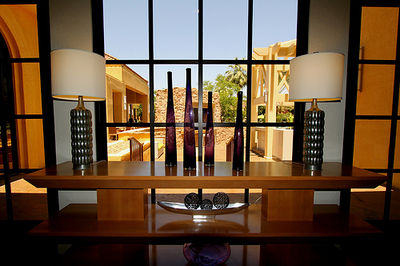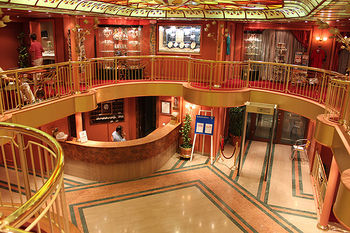Hospitality Operations
| Course Blog |
|---|
|
|
- Hospitality is the relationship between guest and host, or the act or practice of being hospitable. Specifically, this includes the reception and entertainment of guests, visitors, or strangers, resorts, membership clubs, conventions, attractions, special events, and other services for travellers and tourists. (Wikipedia)
If you would like to join this course, please contact Lynn Brandham.
Otago Polytechnic offers learning support through the Hospitality Operations weblog
People enrolled with Otago Polytechnic as students of this course have access to learning support services such as the libraries, the Community Learning Centres, regular contact with learning facilitators and lecturers, assessment services and certification.
Contents
Learning Objectives
1. Demonstrate knowledge of the hospitality sector and its relationship to other sectors of the tourism industry
2. Describe the organisational structure of a hotel and its systems and processes
3. Demonstrate knowledge of the front office role and the process of selling accommodation
4. Demonstrate knowledge of alcoholic and non-alcoholic beverage and use of beverage service equipment
What is hospitality?
The word hospitality derives from the Latin hospes, which is formed from hostis, which originally meant "to have power." The meaning of "host" can be literally read as "lord of strangers."
The accommodation section for this course focuses on buying and selling accommodation which is the facilitation of all aspects of reservation enquiries in a commercial hospitality environment, including rate information, room types, facilities, location, payment methods, customer services. At the completion of this section you will be able to take, amend and cancel reservations in the commercial accommodation environment.In our first class session we will familiarise ourselves with the hospitality sector and in particular different types of accommodation. .
There are many unique hotels around the world, they may cater for to specific customer requirements or hobbies. Check out your next activityso that you can share this with your fellow class members. Think about how important it is for hotels to market themselves to keep up with competition.
Front Office
The front office of an accommodation establishment is seen as the hub of the hotel. This is often where a customer makes their first contact with the establishment. Think of the different ways this may happen.
There are four different stages to the guest cycle: pre-arrival, arrival, occupancy and departure. The front office team are part of each of the four stages. We will discuss what happens at each stage and the importance of each stage from both the guests perspective and the perspective of the host accommodation.
This is when a guest informs the hotel that they will be staying. Within this part of the course we will look at why reservations are important, their purpose (for the customer and accommodation establishment), differences between guaranteed and non guaranteed reservations. Many hotels offer guests a package which may be made up of accommodation, transfers, food, beverage and activities. We will discuss the key objectives of the reservation department, the product and rates.
Reservations
Many hotels today use computerised reservation systems that assist with taking reservations, maximising occupancy, calculating yield and revenue (RevPar - revenue per available room) and a new measurement is known as GOPPAR. Let take a look at how to work out some of those calculations;
http://moodle.op.ac.nz/file.php/38/percentages/percentages_p._1.pdf.
During this course we will use the property management system Mundas. This simulates commonly used reservations systems used in many hotels through New Zealand and worldwide. We will also look at a manual system, if you are setting up a smaller accommodation establishment or if technology should fail!
When a customer books a room at a hotel, they will usually be given a confirmation number, this confirms that they have made a booking. They may be asked if they want to guarantee their booking, this will ensure that a room is available when they arrive at the hotel. Hotels have different reservation policies, dependent on different factors, such as location and price. Take time to complete the policy activity.
Within the hotel industry there is terminology (abbreviations and jargon) that is used. Some of this is used when making a guest reservation. We have already looked at the differences between a guaranteed booking and a non guaranteed booking, when 6pm release may be used. Terms such as upgrade, blacklist, overbooking, VIP, room status, DND, DNM, OOO may also be used. We also want to know details about our customers, their preferences so that we can either anticipate their needs or ensure excellent customer service when they stay with us, such details as MOP, ETA and ETD may be sought at the time of the reservation.
Selling
There are many forms of communication that are used within the front office and reservations setting (written, oral and non verbal). As part of your role in the front office you will be required to write to guests, potential guests and people external and internal in the hotel. All written communication, whether by letter, email, memo, fax or reports must be written effectively and professionally. Business letters are used to confirm a guests booking, as a response to an enquiry for a conference, as a welcome letter to the hotel and in some cases responding to a letter of complaint. A fax or email may also be used to confirm a guests booking. A memorandum (memo) is an effective method of communicating to a number of people at the same time. Take time to complete the correspondence activity.

